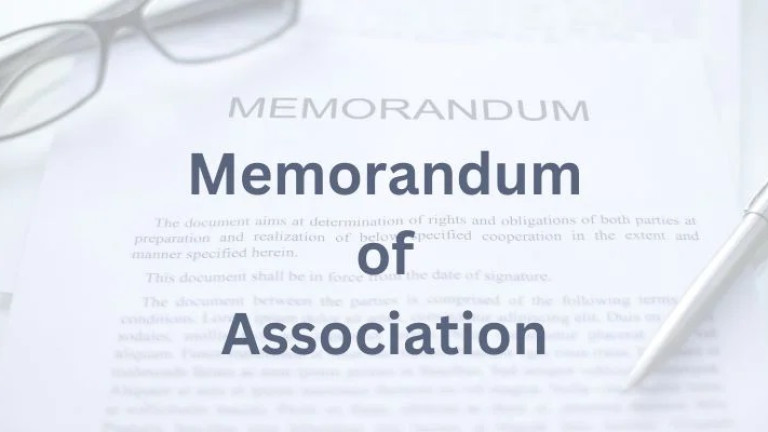Nigerian Company Incorporation Service
With our CAC Company Incorporation Service, you can be confident that your company will be registered legally and efficiently, allowing you to focus on growing your business in Nigeria.

SPLASHDICT
CAC Registration Support for Companies
A Company is a business arrangement that enjoys legal personality. It is a corporate body and separate from its members (owners). The liabilities of members (owners) of a Company may be limited by shares or guarantee or may be unlimited. A Company may be public or private.
The name of a Company must end with the word “Limited” or “Limited by Guarantee” or “Unlimited” or their abbreviations (“Ltd or PLC” or “Unltd” or “Ltd/Gte”)
A Company is a business entity created by individuals, groups, or organizations to conduct business. It can have one or more shareholders or owners who are not liable for its debts beyond the amount of capital invested.
SplashDict is dedicated to helping businesses register and legalize their companies in Nigeria. Our service is designed to make the company registration process seamless and stress-free while ensuring that all legal requirements are met.
Our digital process allows you to complete your registration from anywhere, anytime. With a team of CAC-accredited Chartered Secretaries, we guarantee accuracy, efficiency, and transparency throughout the process.

Company Incorporation Service Package - Features
We offer a comprehensive suite of services to streamline your Company Registration process:
Choosing Type of Company to Incorporate
Here are the types of companies we can register for you:
Private Limited Company (LTD) Incorporation
Nigerian Private Company Limited by Shares Registration with the CAC
A Private Limited Company (LTD) in Nigeria is the ideal choice for entrepreneurs and growing businesses looking to protect their assets while enjoying the benefits of a separate legal entity.
It requires at least one natural person as a director, and the same individual can serve as both the sole shareholder and director, offering flexibility and simplicity in management.
At SplashDict, we make incorporating your Private Limited Company easy, handling everything from registration with the Corporate Affairs Commission (CAC) to delivery of your company documents.
Key Features:
- A separate legal entity owned by shareholders.
- Shareholders have limited liability.
- Typically used for small and medium-sized businesses.
Private Company Limited by Guarantee (LTD/GTE) Incorporation
Incorporation of Guarantee Company (Ltd/Gte) in Nigeria
This type of company is a non-profit organization, similar to an Incorporated Trustee, but it is registered as a company with the CAC.
Charities often use a guarantee company entity, but not all companies limited by guarantee are charitable. Other common uses for this type of company are membership organizations and clubs, including sports associations.
It has members instead of shareholders, and its activities are restricted to those set out in its memorandum and articles of association. The company's members limited by guarantee are not liable for its debts, but they may be required to contribute to its assets if it is wound up.
Key Features:
- A type of company where members guarantee the debts of the company.
- Often used for non-profit organizations and cooperative societies.
One-Person Company (OPC) Incorporation
Nigerian One-Person Company Registration with the CAC
A One-Person Company (OPC) is a business structure that enjoys the benefits of both forms of business, i.e., a sole proprietorship and a company. Thus, it eliminates the hassles of finding the right co-partner/s for starting a business as a registered entity.
In Nigeria, the concept of a One-Person Company was introduced with the Companies and Allied Matters Act (CAMA) 2020. This type of company is ideal for entrepreneurs who want to have complete control over their business while enjoying the benefits of a separate legal entity.
It is similar to a private limited company, except that it has only one shareholder and one member. OPC has lower compliance costs compared to other types of companies, as it is not required to hold annual general meetings (AGMs) or other shareholder meetings.
Key Features:
- A company with a single shareholder.
- Offers limited liability to the sole shareholder.
Public Company Limited by Shares (PLC) Incorporation
Incorporation of Public Limited Company (PLC) in Nigeria
A Public Limited Liability Company (PLC) in Nigeria is a company that has offered its shares to the public and has limited liability. These companies have invited the public to subscribe to their shares and become shareholders thereby being part of the owners of the company.
It is a mandate to have a minimum share capital of N2,00,000 and requires a minimum of 2 Members to register the Public limited company; there is no restriction on the maximum number of shareholders in such company. The shareholders have liability only on the amount of capital they have invested in the company.
Key Features:
- Can be listed on the stock exchange and has a wider shareholder base.
- Subject to more stringent regulations than private companies.
- Often used for large corporations.
Private Unlimited Company Incorporation
Nigerian Private Unlimited Company Registration with the CAC
Section 21(1)(c) of CAMA defines an unlimited company as a company that does not have any limit on the liability of its members. A Private unlimited company is very much like a regular private company limited by shares, the main difference arises when insolvency occurs - You could lose everything.
They enjoy the privilege of not having to deliver annual accounts to the Corporate Affairs Commission. This allows them to maintain a level of secrecy unavailable to limited companies, which must file annual accounts.
An unlimited company has the responsibility of a sole trader. Upon its registration, it assumes a separate legal personality from those of its members, enjoys perpetual succession, and becomes endowed with the capacity to sue and be sued separately from its members.
Key Features:
- A company with unlimited liability for its members.
- Less common in Nigeria and typically used for professional partnerships.
Comparison among different Company types
Benefits of Company Registration
Registering your company in Nigeria offers numerous advantages that contribute to the long-term success and sustainability of your business:
Why Choose SplashDict for CAC Company Registration?
We streamline your business setup process with expert guidance and efficient service.
Expert Team
Our team of Chartered Secretaries ensures seamless business setup.
CAC-Accredited Agents
Our team of CAC-accredited agents ensures seamless and compliant registration.
Transparent Pricing
Clear and upfront pricing with no hidden fees.
Fast & Efficient
Experience fast and easy registration with our streamlined online platform.
Secure & Reliable
Robust security measures protecting your data and documents.
Dedicated Support
Receive continuous support from our team throughout and beyond the registration process.
FAQs
Here are common frequently asked questions and answers related to CAC Company Registration Service:
A company is a legal entity that is separate from its owners and is formed to conduct business. It can own assets, enter into contracts, sue, and be sued in its name. Companies have a formal structure with shareholders, directors, and often employees.
A Business Name is a simpler registration for sole proprietors or small partnerships and does not offer separate legal status or limited liability.
A Company is a separate legal entity with limited liability, a more formal structure, and greater access to financing and opportunities for growth.
Business name registration is simply registering a name under which you conduct business. Company incorporation creates a separate legal entity with its own rights and obligations.
The key requirements for incorporating a company in Nigeria include:
- At least one director and one shareholder (who can be the same person)
- A unique company name
- A registered office address in Nigeria
- Completion and submission of necessary incorporation forms
- Payment of CAC incorporation fees
- Memorandum and Articles of Association (MEMART)
The common types of companies include:
- Private Limited Company (LTD): A company with limited liability and ownership restricted to its shareholders.
- Public Limited Company (PLC): A company that offers its shares to the public.
- Company Limited by Guarantee: Typically used for non-profit organizations, where members have limited liability but no shares.
- Unlimited Company: A company where shareholders have unlimited liability.
Some benefits of setting up a company include:
- Limited liability protection for shareholders
- Legal recognition and separate entity status
- Perpetual existence, meaning the company continues even if ownership changes
- Enhanced credibility with clients, suppliers, and financial institutions
- Easier access to financing and opportunities for growth
A company director is responsible for overseeing the management of the company. Directors ensure that the company complies with legal obligations, makes strategic decisions, and acts in the best interests of the shareholders and the company.
For a Private Limited Company, only one director is required, while a Public Limited Company must have at least two directors. Some specialized companies may require additional directors.
Yes, a Private Limited Company can be owned by just one person, who acts as both the sole shareholder and director. This structure allows small businesses to incorporate while maintaining full control over the company.
Shareholders are the owners of the company and their primary responsibilities include:
- Voting on major company decisions (e.g., appointing directors)
- Approving financial statements
- Receiving dividends (if declared)
- Selling or transferring their shares when necessary
Name Search: 6 - 24 hours from submission.
Grant of Certificate of Registration: 24 -96 Hours from filing.
Total time: Approximately 2 - 7 days.
Share capital refers to the money or assets a company raises by issuing shares to shareholders. It represents the value of the company’s equity and can be used for financing operations, growth, or other business needs.
The minimum share capital requirement depends on the type of company being registered. For a Private Limited Company (LTD), the minimum authorized share capital is ₦100,000. For certain industries, such as oil and gas or banking, higher share capital requirements apply.
A company secretary ensures that the company complies with all statutory and regulatory requirements. They manage corporate governance, file necessary documents with authorities, and maintain records such as minutes of meetings, statutory registers, and shareholder communications.
Upon successful incorporation, you will receive the following documents:
- Certificate of Incorporation
- Memorandum and Articles of Association (MEMART)
- Corporate Tax Identification Number (TIN)
- A status report showing the company's directors, shareholders, and registered office.
Insights & Updates
Explore our blog for valuable resources, tips, and updates on Company Registration in Nigeria.





